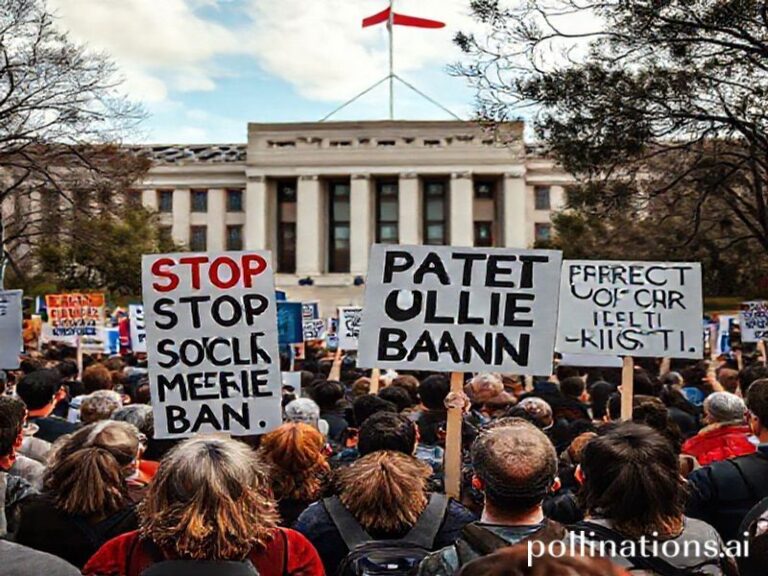yvette cooper
Yvette Cooper and the Empire of Small-Print Doom
By our Special Correspondent in Existential Limbo
LONDON, Tuesday – Somewhere between the soggy Pret sandwich and the next Brexit anniversary, Yvette Cooper has quietly become the West’s most efficient exporter of bureaucratic dread. While other politicians chase headlines the way toddlers chase soap bubbles, the Chair of the Home Affairs Select Committee has been busy packaging parliamentary procedure into a perfectly weaponised instrument of international tedium. Think of her as the IKEA of governance: flat-packed, allen-keyed, and guaranteed to induce marital discord across 27 time zones.
Globally, Cooper is best known for two things: 1) grilling tech CEOs until their empathy algorithms crash, and 2) producing reports so dense they bend light. Last month she handed the U.K. government a 214-page migraine on Channel migrant crossings. The document landed in Westminster like a lead soufflé, but in Brussels it triggered a continental eye-roll audible from the Berlaymont to the Baltic. Suddenly every Schengen country remembered they, too, could weaponise footnotes. The French Interior Ministry promptly leaked a memo titled “Copier-Coller Anglais” which, roughly translated, means “Ctrl-C, Ctrl-V, shrug dramatically.”
Beyond Europe, the implications are deliciously bleak. Washington’s congressional aides—already suffering from chronic acronym poisoning—have started referring to Cooper as “She Who Spreads Appendices.” A bipartisan staffer in D.C., speaking on condition of anonymity and three negronis, admitted her reports are “the perfect insomnia cure: no side-effects except creeping nihilism.” Meanwhile in Canberra, Australia’s Home Affairs department has begun live-streaming its own committee hearings in the hope that Cooper-style monotony will deter TikTok-addicted teens from ever seeking asylum. The pilot episode attracted 43 viewers; 42 were bots, and one was a cat walking across the keyboard.
The wider significance, dear reader, is that Cooper has inadvertently proved a grim universal truth: if you want to neuter a global crisis, simply bury it under an avalanche of numbered clauses. The Rwandan deportation scheme? Delayed until the heat death of the universe by Schedule 7, sub-paragraph (c) of her latest report. Elon Musk’s plans to implant microchips in refugees? Halted pending a 72-point risk assessment questionnaire that even the microchips refuse to complete. Somewhere in Davos, a billionaire just woke up screaming “Point 14(b)!”—but nobody noticed because Klaus was already explaining stakeholder synergies.
Of course, Cooper’s approach is quintessentially British: polite, meticulous, and about as emotionally reassuring as a tax audit conducted during a funeral. Yet therein lies the genius. In an era when populists promise simple answers to complex problems, she offers complex answers to simple questions. Ask her “Why are people crossing the Channel in dinghies?” and she will respond with a flowchart that requires a PhD in despair and a magnifying glass. It’s governance as performance art, performed in a windowless committee room that smells faintly of instant coffee and lost hope.
The dark punchline? It might actually work. By the time anyone finishes reading her recommendations, the original crisis has usually mutated into something else entirely—say, a shortage of lifeboats or a sudden fad for paddle-board citizenship. Meanwhile Cooper, expression as neutral as a Swiss banker, moves on to the next catastrophe with the relentless energy of a Roomba hitting a particularly stubborn patch of existential carpet.
And so the world watches, half-horrified, half-impressed, as one woman from Pontefract exports parliamentary pedantry to the far corners of the Earth. If civilisation collapses, archaeologists will find her reports intact, laminated, and footnoted in triplicate. They will conclude, not unreasonably, that our species perished not with a bang or a whimper, but with a cross-reference to Annex 3.
Sleep tight.







